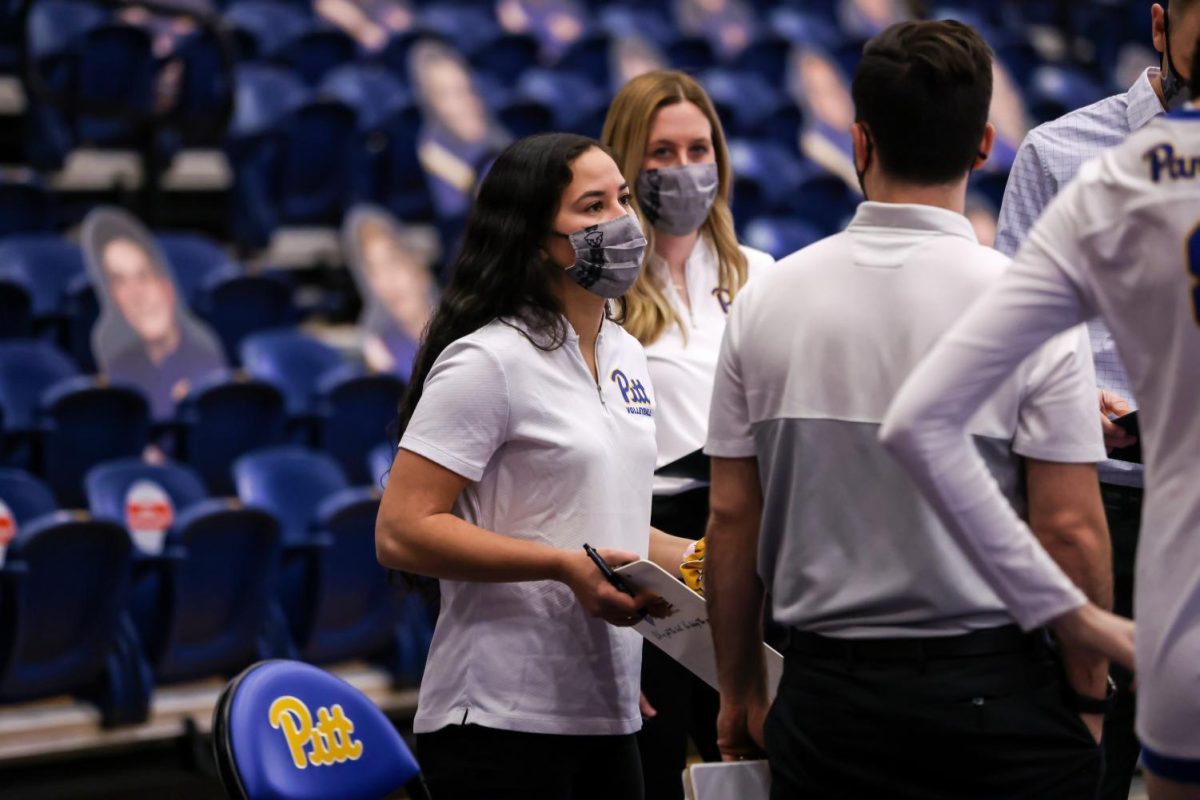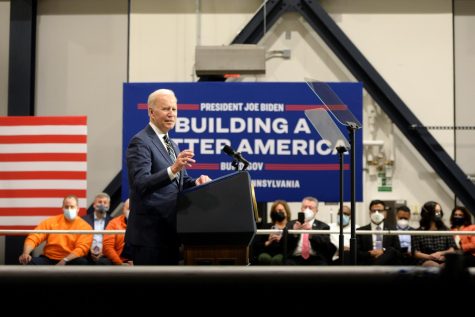Campus Women’s Organization marches to “Take Back the Night”
October 16, 2009
Despite the damp chill, students in Pitt’s Campus Women’s Organization marched through South… Despite the damp chill, students in Pitt’s Campus Women’s Organization marched through South Oakland last night to cries of “Women unite! Take back the night!”
Both women and men marched from the Schenley Quad to the William Pitt Union ballroom to raise awareness of sexual assault on campus. Freshman Keely McCaskie, the CWO political action vice chair, said the media projects an image of sexual abuse as acceptable.
“The only way to change this is to raise awareness and break the silence,” McCaskie said.
Bystanders’ reactions ranged across a spectrum as the march progressed. While one woman gave the marchers a cheerful thumbs up and others wished them luck, a few spectators taunted the participants.
One person asked the group what they were hoping to accomplish — adding that the marchers couldn’t stop rape.
Sexual Assault Services volunteer Danielle Atkins, also a freshman, viewed such reactions as “a defense mechanism.”
“They see empowered women as a threat,” Atkins said, adding that jeering at the marchers was their way of regaining dominance.
Junior Mark Nolfi agreed.
“Patriarchy limits what both sexes can do … I feel a lot of men think feminist doctrine attacks them, and it doesn’t,” Nolfi said.
Although not all the students involved in the procession considered themselves feminists, guest speaker Larry Miller, a Pitt graduate and representative for Pittsburgh Action Against Rape, addressed the issue at the gathering in the ballroom immediately following the march.
Miller said today’s culture creates and promotes an environment in which sexual assault and rape are overlooked, if not encouraged, with sexual norms and gender stereotypes.
One in four girls and one in six boys are survivors of sexual abuse, Miller said, but very few violators are convicted. In order to change this, he encouraged women to engage men and “get them involved in the movement.”
He advised students to evaluate their own lives, relationships and interests and to determine whether they were making healthy choices — or “toxic” ones.
He insisted that people need to understand why sexual abuse is not acceptable and change their behavior accordingly. In order to do this, Miller suggested that those already involved with the movement “draw people in gradually … [and] approach the issue so people want to talk about it.”
The CWO rally was an effort to do just that.
Robin Lane, CWO political action chair and a Pitt junior, said the march was not catering to an audience of one gender, but to men and women alike. Lane said that the group purposely marched in places where women would be afraid to walk at night.
“To women, it’s encouragement. To men, it’s saying, ‘That’s not ok,’” Lane said.
Student speaker Julie Good, a junior transfer student majoring in media and professional communications, encouraged survivors of rape and sexual assault to seek help.
“Silence,” Good said, “encourages the tormentor.”
Pitt Counseling Center counselor Kym Jordan-Simmons stressed that the center offers free, confidential services weekly and biweekly to all students because “Even one violation, episode, or incident is too much.”







